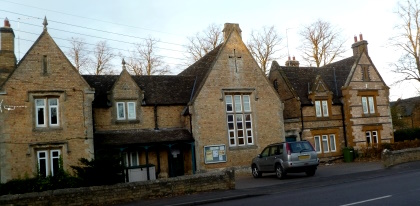|
News for the Pews |

Home

2nd July 2024
TuesdayReflection
************************
Fritz Wendt
Lutheran Pastor: Political theology
'The Joy of the Lord is our strength'
************************
Nehemiah 8 reminds us that hearing the word of God is an occasion for joy, not sorrow and regret.
When the seventh month came - all the people gathered together into the square before the Water Gate
.....Neh 7:73 - 8:1
Who are these people gathered at Jerusalem's Water Gate?
Imagine you were raised in a foreign country, where you knew you were not like the other kids.
Your parents spoke with an accent. The food you ate was different from that of your friends.
The Babylonian stories you heard at school were different from the Hebrew stories you heard at home.
Your parents were often anxious, and talked about their lives in the old country, always longing to go home, always telling you how much better home was.
Rather than being a way of life, the Hebrew culture and language has been an act of defiance for you; in many ways Babylon is more home to you than Jerusalem, the city of your parents, the city of your roots.
Finally, after all the despair and grief, God has changed world history:
The Persians have allowed some of your people to return to Jerusalem; you are among them.
The happiness about your homecoming has been short-lived, however: everything is in ruins; the Persians are still in control; external enemies threaten and internal divisions create conflict.
Sadness and heartache are everywhere.
But now you are standing in the city square.
For 52 days you have worked hard alongside the others to build the walls around Jerusalem.
It is beginning to look like a city, now that the temple is finished and the walls are up.
You gather with over 50,000 of your people at the public square on the East Side of the city in front of the Water Gate.
A platform has been built and along with Nehemiah - the person loved by some and hated by others - important people are standing at attention.
The priest Ezra brought the law before the assembly (8:2) ... a lone figure ascends to the platform carrying an ancient scroll and surveys the whole assembly.
He unrolls the first scroll and begins to read.
The words are ancient words, words your parents have talked to you about over and over again.
He read from it facing the square before the Water Gate from early morning until midday, ... and the ears of all the people were attentive to the book of the law ... they bowed their heads and worshiped the LORD with their faces to the ground (8:3).
The first words out of Ezra's mouth are likely, I am the Lord your God who brought you out of Egypt, out of the land of slavery; you shall have no other God but me.
No matter how familiar you were with these words, you have never heard them just like this.
A transformation has taken place in the hearts of your people.
You have managed to repair the broken walls that had become a symbol for your defeat, brokenness, and misery.
My friends, imagine a congregation of 50,000 that stands and listens to the Word of God for six hours straight.
As Ezra goes on and on, the people, starved for the Word, hungrily listen to stories of creation, of Noah and the ark, of Abraham and Sarah, of Joseph and his brothers, of the Egyptian captivity, of Miriam and Moses, of the Ten Commandments and God's instructions for creating a community.
As Ezra translates the stories into the people's everyday language, and as priests circulate among the people to explain and instruct, a hush comes over the people.
They are leaning forward, fearful they'll miss a single word.
In a world of doubt and despair, and of questions about the meaning and purpose of existence, they hear of God's glory, God's forgiveness, God's mercy and God's love, of his intention for the world, and of his promise to make it all good in the end.
As they listen attentively, they discover that the One being revealed to them is as patient with them as they are impatient with his Word, and as enamoured with them as they have been bored with him.
We are told in our text that there are tears when the people listen: all the people wept when they heard the words of the law (8:9b).
God surprises the people: And Nehemiah, who was the governor, and Ezra the priest and scribe, and the Levites who taught the people said to all the people,
"This day is holy to the LORD your God; do not mourn or weep" (8:9a).
Each of us has experienced moments when we feel like losers.
We have seen defeat, brokenness, and misery.
We have suffered from guilt and failure.
Grief and loss are on our itinerary periodically; I lost two close friends in the past two years. We go through with it as we are able ... Yet God says, "Do not be grieved."
The people are stunned. They say, "How can we not weep?"
But Nehemiah goes on to say,
"Go your way, eat the fat and drink sweet wine and send portions of them to those for whom nothing is prepared, for this day is holy to our Lord; and do not be grieved, for the joy of the Lord is your strength" (8:10).
Eat the fat and drink the sweet wine.
Really?
Joy and rejoicing do not seem to make sense when people are engrossed in their misery.
But as the Scriptures often do, the story of Nehemiah offers advice that goes against everything we know.
Nehemiah tells them not to default to gloom and doom.
Instead, he says, choose genuine joy.
The reason for this is recorded in verse 10: for the joy of the LORD is your strength.
God reminds us of the ground on which we stand.
God wants us to remember that, no matter what we meet on the road, one thing will remain constant: the love of our God.
><(((°>
This is an edited version.
The full article is avaiable on request
Political theology
is a vibrant, interdisciplinary field of scholarship investigating deep connections between religion and politics.
Scholars of Christian theology, religious studies, and critical theory have brought great energy to the field, investigating not only connections between ideas about God and ideas about the sovereign, but also connections between religious and political notions of law, justice, love, hope, and tradition-in theory and in practice.
About Fritz Wendt,
M.A., M.Div., LCSW-R
St. Paul's Lutheran Church, Parkchester
Fordham School of Social Work
Lutheran Pastor (ordained 1990).
Licensed Clinical Social Worker.
Church Musician.
Teacher. Translator. Writer.
Emergency Psychological Technician.

Contact the Rector
The Revd.
Nic.Edwards
The Rectory,
Church Lane,
BUGBROOKE,
Northampton,
NN7 3PB
Land Line: 01604 - 815496
(Can be accessed from the mobile device)
Mobile: .....
E-mail:
thebeneficeofbhkandr at gmail dot com
Contact the Benefice Office
Sunday School Rooms, Church Lane,
BUGBROOKE, Northampton, NN7 3PB
Land Line: 01604 830373
E-mail:
thebeneficeofbhkandr at gmail dot com
Mon., Tues., Wed,, Thur., Fri.
9:00am to 11:30am

For Baptism bookings (Christenings)
to arrange an appointment please contact
the Benefice Office.
For Wedding bookings:
please contact the Benefice Office to arrange
an appointment.
Who Made This?
Seeing as you asked, if you can give helpful
advice or report factual corrections and
'deliberate mistakes',email:-
regparker3 at gmail dot com
Email addresses shown using words in an
attempt to avoid 'spam',
Type the email address replacing 'at' with '@',
and 'dot' with '.'
|



